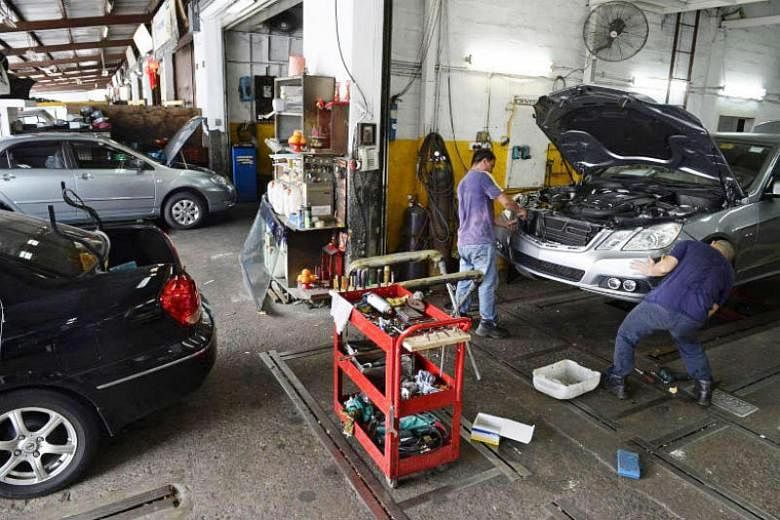SINGAPORE - Car owners are advised to keep proper records if they patronise third-party workshops, to avoid warranty disputes.
In a statement, the Singapore Motor Traders Association (MTA) said on Wednesday (Dec 20) that vehicle owners may have difficulty making warranty claims over a defect or malfunction if this was caused by "any repair, servicing or other actions carried out by third parties".
The MTA said authorised motor dealers have the right to reject warranty claims "in respect of parts that have been replaced or modified by third parties".
The association's statement was in response to what the Competition Commission of Singapore (CCS) said a week ago. The commission said on Dec 11 that authorised dealers had agreed to remove a clause that voided warranty cover should a car owner patronise a third-party workshop.
The MTA said: "To avoid any complications when claiming warranty for vehicles not serviced by authorised motor dealers, motorists should keep proper records of their servicing."
For example, motorists should keep detailed invoices of their vehicle servicing. The invoices should show proof of purchase of genuine parts (with part serial numbers).
"These records would help support their warranty claims," the association said.
It added that authorised agents may need to spend more time and effort going through vehicles which have not been serviced by them if a warranty claim arises.
"This may result in longer downtime and additional cost to the customer," it added.
The association gave an explanation for why servicing at authorised dealers' workshops cost more than at third-party workshops.
It said: "A car is made up of some 30,000 parts and is an amalgamation of more than eight separate but interconnected systems. Every component or part has been rigorously tested by the manufacturer to ensure that they complement each other so that the vehicle performs optimally.
"Thus, using the proper parts, tools and equipment, and having the correct procedure and proper technique to service and/or replace the part/car is critical."


